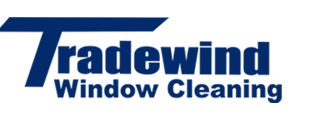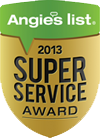How to Start a Window Washing Company
Window washing is one of the cheapest, easiest and most scalable businesses to start. It doesn’t require a large investment, and it’s easy to get repeat customers because windows need constant cleaning.
To succeed in this business, it’s important to have a clear plan and take the necessary steps to launch your company. Here are some of the key aspects you should consider when starting a window washing business: Refer to This Page!
Safety
Window cleaning requires adherence to building and industry codes and regulations as well as OSHA guidelines for working conditions. Safety training and ongoing evaluation of workers help prevent accidents.
One of the greatest risks to window cleaners is falling from a high height due to faulty equipment or unstable scaffolding. If a scaffold disconnects or breaks, a window washer can fall hundreds of feet into the air and suffer fatal injuries.
This is why window washing companies always take extreme safety precautions when cleaning windows at high heights. These precautions include checking all tools and gear for damage before using them.
Aside from ensuring that all tools are properly secured, a Window washing company also must make sure that the ladders they use are in good condition and that all employees know how to operate them safely. This includes wearing the right safety equipment, such as harnesses and ropes.
Experience
Window washing is a specialized skill that requires a lot of experience. This is because each building poses different challenges and requires a different technique.
Moreover, high-rise buildings require specific equipment that must be set up with care. This is why all commercial and high-rise window washers must have extensive training to ensure safety at work.
A professional window cleaning company is a valuable asset to any apartment complex, office building or business. Clean windows not only look better but also help to maintain the building’s energy efficiency and lower your monthly bills.
Equipment
Whether you specialize in residential or commercial window cleaning, you will need to have the proper equipment to do your job. The basic tools you need include buckets, sponges, hand dishwashing liquid, squeegees, and lint-free rags.
There are also ladders and extension poles needed to clean high windows. You can rent them from your local hardware store or buy them at a wholesaler.
When choosing a ladder, be sure to choose one with a grip surface that will prevent the ladder from sliding and damaging the building. You can also invest in ladder mitts to protect your hands from scratching the glass.
Another essential piece of equipment is a water-fed pole and water purification system. These allow you to wash windows without the need to climb a ladder and dispense water that’s decontaminated with chlorine, minerals, and particulates.
Insurance
Window washing companies face a number of risks, from injury and property damage to theft and fire. Insurance policies can help protect your business from unexpected events that could cause significant losses.
General liability insurance is a critical component of any window cleaning company’s insurance program. This policy covers damages, legal defense costs, and expenses related to a lawsuit brought against your company for bodily injuries or property damage.
Workers compensation insurance is also a must for window cleaning companies with employees. If a worker gets injured while on the job, this insurance pays for their medical bills and lost wages.
Commercial auto insurance is another important type of business insurance for window washing companies. It covers vehicles ranging from utility vans to box trucks used in your business.
Purchasing window cleaning insurance may be done online, but it is important to speak with an agent to ensure you have the right amount of coverage for your business needs. It’s also a good idea to look into options like cyber insurance, employment practices liability, and contractors pollution liability. Click for more info!



